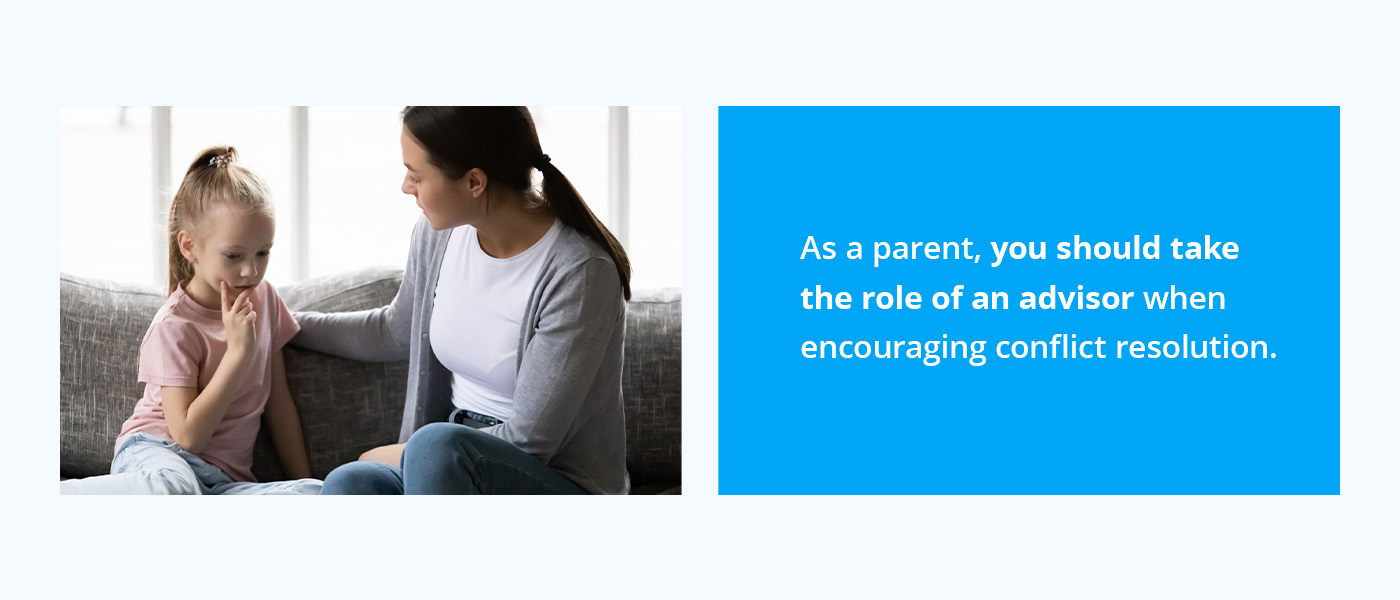Sibling rivalry is very common in households with two or more kids, and it’s understandable. Children are forced to live under the same roof and spend most of their free time together. With different personalities and temperaments in the mix, it’s common for jealousy, resentment and even fights to arise. Thankfully, there are many steps you can take to foster healthier relationships between your children early on.
Here’s what you need to know about conflict between children and how to handle sibling rivalry as a parent.
What Is Sibling Rivalry?
Sibling rivalry is competition among siblings for attention, approval or affection from parents. It is very common among households and can take several forms, such as name-calling, bullying, bickering or constant complaints of unfairness. It can lead to physical fights, resentfulness and constant competition for parental attention.
All children can experience sibling rivalry, whether they are the same or opposite sexes, are step-siblings or have a large or small age gap. While there are many causes of sibling rivalry, most arise due to underlying cases related to family dynamics and birth order. For firstborn children, their largest source of comfort and security comes from their parents. By introducing another sibling, they may feel the need to constantly compete for your attention.
While not all competition is negative, you must be intentional about avoiding fostering this behavior. Children can recognize slight changes in your interactions with each child and may detect them as potential threats to their comfort and security. Too much conflict and competition can also be hurtful and lead to long-term effects on a child’s self-esteem and relationships.
6 Tips for Discussing Sibling Rivalry
When your children are young, age differences and temperaments are impossible to change, making sibling rivalry inevitable. By being intentional about avoiding fostering conflicts and helping manage jealousy and misunderstandings, you can create a healthier dynamic in your family.
Here’s how to deal with sibling rivalry with your children, promote cooperation, reduce favoritism and help mitigate the long-term effects sibling rivalry can cause:
1. Foster a Cooperative Environment
While you should avoid interfering in arguments, your kids should know how to handle conflict by seeing proper conflict resolution in action — meaning, they learn it from your own behavior. You can model cooperative behavior and set a good example by solving conflicts in your disagreements with your partner and children.
Research shows problems in a relationship and hostility toward a child can negatively impact sibling relationships. If your children see that you or your partner yell at each other during arguments or slam doors, they’re more likely to do the same, seeing it as a proper way to handle their issues.
It’s important that you create opportunities for cooperation and compromise in your home. Empower your child to play together, explore their individual personalities and share time with you. Make it a point to say you are sorry when having a conflict with a significant other and let them see you cooperating with each other.
2. Stay Calm and Neutral
When managing sibling conflict, stay calm and neutral. Instead of blaming one child over another, focus on each person’s role in the situation. While emotions aren’t an excuse for aggressive behavior, children are more likely to cooperate if they feel they’re being heard. Remind them that using their words is the only way to solve the problem, and you’ll be there to listen.
Children will notice if you tend to baby your youngest child or if you believe your oldest child’s version of a story more often. As a parent, you should take the role of an advisor when encouraging conflict resolution. Avoid taking sides and encourage a solution that’s beneficial to everyone. Set limits such as no name-calling or physical contact, but avoid interfering so your kids can learn how to negotiate their own conflicts.
3. Provide Problem-Solving Tools
While it might not be possible to stop sibling rivalry, you can provide the tools needed to prevent future conflicts. Demonstrate or show children how to compromise, share or approach situations in a more positive way. You might also help children recognize their own emotions so they can turn to healthier coping skills like deep breathing when stressed or angry.
You should also teach your children how to ask to play, accept or decline invitations to play and see situations from the other’s perspective. Research shows when both parents are children are involved in problem-solving, children gain important skills that help them resolve conflicts in the future, whether with siblings or in their daily lives.
4. Avoid Favoritism and Comparisons
Celebrate individuality and avoid pitting children against each other. Show that you are proud of your children and their unique strengths without drawing comparisons. For example, avoid comparing children’s grades and sports performances. Children are less likely to fight if they feel you appreciate them as individuals.
Let your children know that they are special to you by spending time with them individually. Devote a few minutes to check in with each child throughout the week and spend an equal amount of alone time with each child on a weekly or monthly basis to avoid jealousy. If one child enjoys spending time outside, do an outdoor activity with them. If the other child favors reading a book indoors, snuggle up beside them.
It’s also best to avoid labeling. For instance, deeming one child the “artsy one” and the other the “sporty one” implies their value is dependent on their performances in these areas. Instead, empower them as individuals without using labels that attach fault or guilt or could potentially pit them against one another.
5. Set Up Regular Family Meetings
Having regular family discussions provides an opportunity to work together as a team and gives children a fair chance to take part in decisions that affect them. Let each family member say what they want to say.
Establish clear house rules that all children can agree to follow and hang them in a public space, such as the kitchen, to remind everyone of their commitment to being a happy, healthy family. Encourage listening and use the time for constructive conversations that lead to fair and practical solutions.
6. Reach Out for Professional Guidance
At times, even your best efforts might not solve sibling rivalry and conflict. In these situations, it’s OK to reach out for extra help or guidance. It might be time to call professionals if:
- The sibling rivalry is so severe that it causes marriage problems.
- Conflicts are affecting family members’ mental health and self-esteem.
- There is a real threat of physical danger.
- The sibling rivalry is potentially stemming from psychological issues like depression.
Allow an Expert at Merrimack Valley Psychological Associates to Help
While your kids are going to have disputes, knowing how to deal with sibling conflict can help you reduce intense fights and restore harmony to your home. With these tips, you can adjust your parenting techniques and foster cooperation between your children. And if you need more help, you can reach out to Merrimack Valley Psychological Associates for additional support.
We can sit with you and your children to help your family navigate this challenging time. Our compassionate team can teach sibling rivalry therapy interventions, offering healthier coping and conflict-resolution skills. We can also provide tools to help you manage stress, anxiety, depression and anger.
We invite you to reach out today to schedule an appointment.



